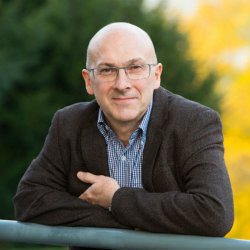Noise-induced transitions in gene regulatory networks
This is an exciting opportunity to undertake a PhD project that will combine theoretical and experimental work in biophysics. The aim of the project is to investigate the emergence of noise-induced transitions in gene regulatory networks, and understand the interplay between stochastic fluctuations and network topology in producing multistable genetic responses.
Start date
1 January 2023Duration
4 yearsApplication deadline
Funding information
This project is for a student with a UK nationality, EU settled, pre-settled status or indefinite leave to remain. The student will be covered with a full tuition fee and the stipend of £19,062 per year.
About
Our world is characterized by noise sources at different spatial and temporal scales. For instance biomolecules in cells undergo Brownian motion before ultimately interacting with their targets. Although noise can challenge the survival of a living system, it can also play important 'active' roles, such as random mutation and variations in phenotypes.
One example of noise as an active dynamical player is provided by so-called noise-induced transitions, which have been largely investigated in a variety of chemical, physical, and biological systems. These may occur when the system is affected by stochastic fluctuations of a control parameter, representing for instance a fluctuating environment, and are usually referred to as extrinsic noise. Extrinsic noise can produce highly non-trivial effects, such as the ‘creation’ of stable states, which in turn leads to the emergence of multistability or oscillatory behaviours in systems deterministically monostable.
We have recently formulated a description of extrinsic stochastic fluctuations at the level of gene expression that applies when the noise is nonlinear, non-Gaussian, and slower than typical protein synthesis and degradation processes. The aim of this project is to extend this formalism further, and validate the theoretical predictions in dedicated experiments.
The student will share his/her time equally between mathematical analysis and simulations of specific gene networks, and experimental work in the lab. Theoretically the work will include analysis of stochastic differential equations models, and the respective numerical simulations, while the experimental work will include building a cell mimic using dynamic RNA nanotechnology.
This project will constitute an important step forward in addressing the role of noise in our understanding of the principles of life and of evolutionary processes.
For the experimental work the student will have access to the soft matter physics laboratory and instruments in the Advanced Technology Institute at the University of Surrey.
Eligibility criteria
This project is for a student with a UK nationality, EU settled, pre-settled status or indefinite leave to remain. Ideally the start date should be October 2022, but a start in January 2023 is also possible.
Applicants are expected to hold a first or upper-second class degree in a relevant discipline (or equivalent overseas qualification), or a lower second plus a good masters degree (distinction normally required). Any highly motivated individual with a keen interest in developing their research in stochastic processes at the interface with life sciences is encouraged to apply. Strong analytical and numerical skills, and/or previous wet-lab experience will be an advantage.
English language requirements
IELTS Academic 6.5 or above (or equivalent) with 6.0 in each individual category.
How to apply
Applications must be submitted via the Physics PhD programme page on the "Apply" tab. Please clearly state the studentship title and supervisor on your application, and send a follow-up email to either Dr Rocco or Dr Bae confirming that you have applied.
Studentship FAQs
Read our studentship FAQs to find out more about applying and funding.
Application deadline
Research
Dr Andrea Rocco is Senior Lecturer in Physics and Mathematical Biology, with extensive experience in the analysis of stochastic processes in physical, chemical, and biological systems.
Dr Wooli Bae is a lecturer in experimental soft matter physics, specialised in experimental biophysics including DNA/RNA nanotechnology and synthetic biology.

Studentships at Surrey
We have a wide range of studentship opportunities available.

